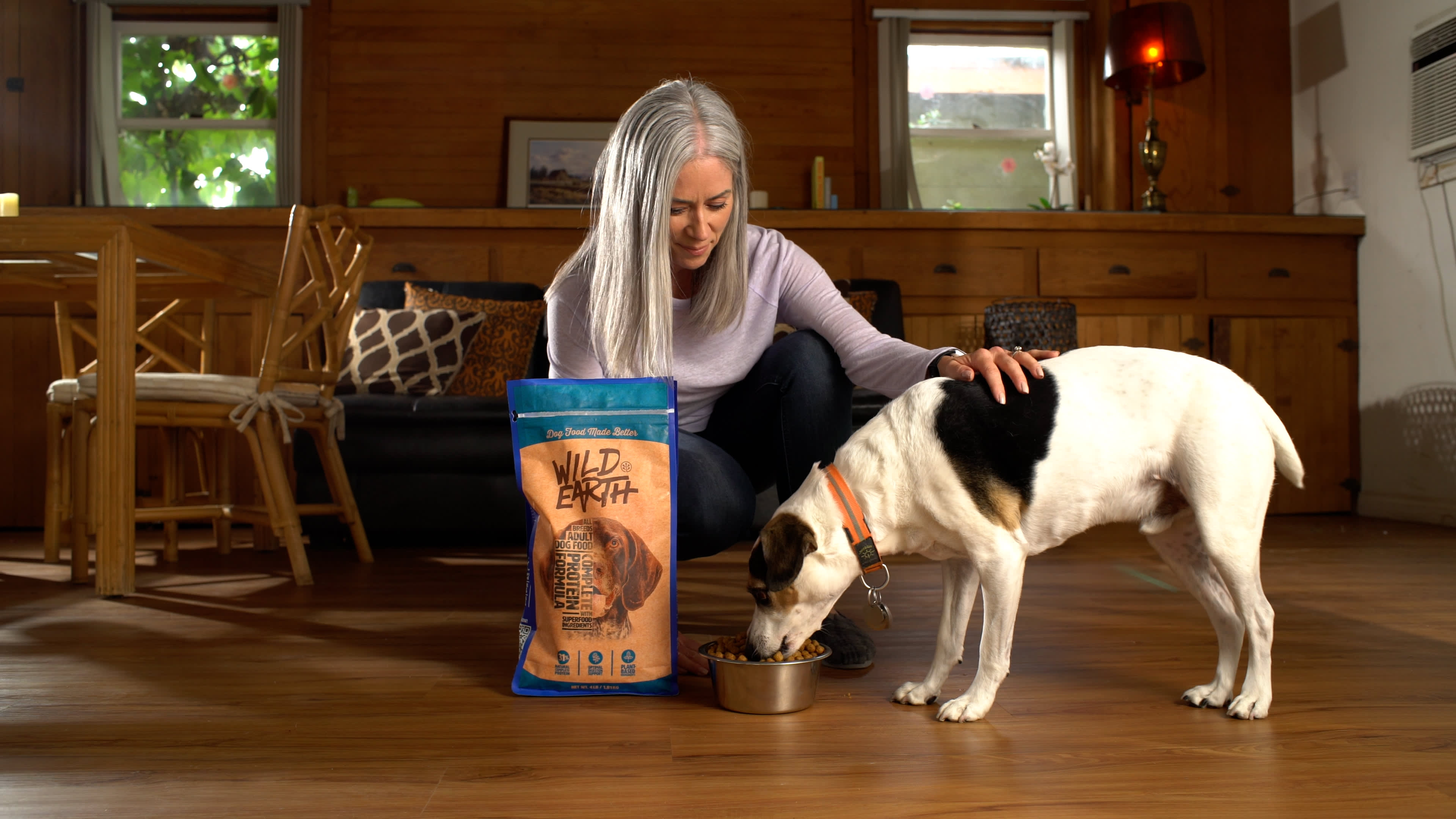Plant-based meat products have made their way into grocery stores, restaurants, and onto kitchen tables thanks in large part to Beyond Meat and Impossible Foods.
Now your pet’s food bowl is the next place you might find plant-based products.
Pet ownership and spending has boomed in the U.S. amid the pandemic. Seventy percent of Americans, or roughly 90.5 million homes, now own a pet, according to the American Pet Products Association. That represents an all-time high and is up from 67% of households in 2020.
In 2020, $103.6 billion was spent in the U.S. on pet-related products and services, a 6.5% year-over-year increase, according to the APPA.
The biggest portion of that expenditure is on pet food and treats, which totaled $42 billion, up 9.7% year-over-year. Not only was that increase driven by new pet owners, but also by people just spending more on their pets — 30% of pet owners said they spent more on their pet in 2020 than the previous year, while only 10% said they spent less, according to the APPA.
With more consumers choosing to eat plant-based products for environmental and health reasons — sales of those products are expected to achieve a 30% compound annual growth rate through 2025, according to a UBS report — the expectation is that they could make similar decisions for their pet’s food.
“A lot of people are like, ‘Your customers are plant-based vegans and vegetarians,’ and actually they’re not,” said Ryan Bethencourt, CEO of Wild Earth, an alternative protein pet food company. “Our customers are people that care about, first and foremost, the health of their animals, and secondly about sustainability.”
Introducing plant-based foods to pets
“In the same way that Beyond Meat and Impossible Foods have found that a majority of their customers are people that care about ESG, about climate change, about sustainability, about health — those are our customers too,” Bethencourt said.
Wild Earth, which sells plant-based dog food and treats made from things like dried yeast, chickpeas, oats, and pea proteins, saw 700% growth from 2020 to 2021 and now has more than 40,000 customers in the U.S., Bethencourt said. The company does not disclose its revenue.
The company initially gained recognition in 2019 when Bethencourt closed a deal with Mark Cuban on “Shark Tank.” It raised an additional $11 million in a Series A several months later that included investors like Mars Petcare, Peter Thiel’s Founders Fund, vegan investment fund VegInvest, and Cuban.
Now, Wild Earth has closed a new $23 million funding round that again included Cuban and VegInvest, as well as Big Idea Ventures, whose chief investment officer is former Beyond Meat board member Tom Mastrobuoni. Actor Paul Wesley and Bitburger Ventures, the venture arm of the eponymous German beer brewery, also invested in this most recent round.
The company will use the funding to produce new dog and cat foods, as well as develop beef, chicken, and seafood cell-based meats, which aims to be more sustainable and cruelty-free.
“Of the meat we consume in the U.S., 25% to 30% of it goes to our pets,” Bethencourt said. “There’s this outdated perspective that the intestines and whatever else goes to our pets; that doesn’t happen anymore.”
“Entire factory farms are running to feed our pets, and it just makes no sense to make little brown balls of protein if we can make it with plants,” he said.
Pet food producers see plant-based future
Other pet food producers are also seeing the opportunity for more plant-focused products.
Mars, which is an investor in Wild Earth and owns pet food brands like Iams, Pedigree, and Whiskas, launched a “plant-first formula” in June called Karma. While the product is marketed as having 60% of its ingredients coming from plants, it also includes chicken or white fish.
Nestlé, which produces pet food products under the Purina brand, launched a dog and cat food in Switzerland in 2020 that includes proteins from plants as well as insects. Mars also is launching a dry cat food made with black soldier fly larvae insect meal in the U.K., one of several bug protein-based foods currently in the works for pets.
Freshpet, which sells refrigerated dog and cat food, said it will start to produce a vegetarian dog food line that will be available at Petco locations this year.
Bethencourt said that he expects General Mills, which owns pet food company Blue Buffalo, will also have a plant-based pet product in the next two years.
It’s a trend that he doesn’t see slowing down as long as the same thing is happening on dining room and restaurant tables across the U.S.
“The same consumers who are buying Beyond or Impossible burgers are the same people who are switching their pets over to plant-based diets,” he said.
